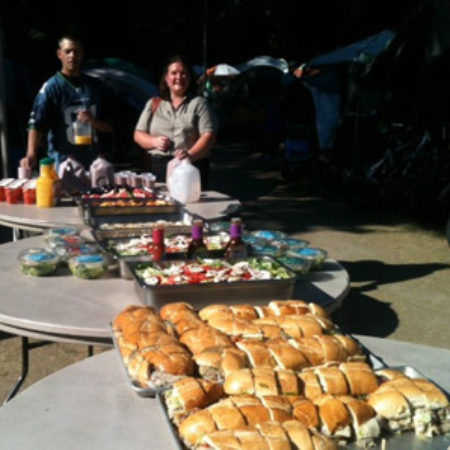A natural disaster, like Hurricane Harvey and the flooding in Houston, Texas, can bring out the best in us. We see families escaping from flooded houses, people saving old folks from rest homes, pets being pulled into rescue boats, and our hearts are filled. These disasters inspire us to help one another and we want to make donations to Episcopal Relief and Development or the Red Cross.
In a similar way, the events in Charlottesville a few weeks ago bring out some of our better qualities as we come together to speak against racism, violence and hatred. We are good at what you might call, “acute decency”.
The problem is, climate change and flood mitigation, just like institutionalized racism and white privilege, are chronic problems. Our responses to acute events like racial violence in Charlottesville and the floods in Houston are urgent. Our response to an emergency needs to be dramatic and immediate. We must care for those who are attacked and for those who are displaced by storms and floods. However, dealing with the underlying problems of climate change, in the case of the storm damage, or racism and white privilege, in the case of the events in Charlottesville (and Ferguson, New York, Florida, Seattle…) requires something more like, “long-term decency.”
Sometimes I feel a sense of frustration as I preach after another shooting, like that in Ferguson a few years ago, or the Orlando night club massacre a year ago, or the white supremacists and white terrorists in Charlottesville earlier this month. I can preach against the specific events, the specific actions of individuals and groups, but how do we begin to make a difference that is more lasting? I fear that when I preach against racist violence we all feel better because something has been said, but then nothing changes. We cannot maintain a constant urgency, but the problems require constant attention.
Jesus calls us to both acute decency and long-term decency. We certainly want to respond with compassion and aide when there is a disaster, and we want to speak out against injustice and evil when they are seen. Long-term decency requires a deeper commitment. You or I alone cannot make the kind of deep, systemic, cultural, and institutional change that is needed to end racism or to slow global warming, but together, our individual lives can make a difference that ultimately leads to that change. Together, as followers of Jesus, when we support one another in advocating for justice and decency, we can make a difference.
At St. Dunstan’s Church, our vision is a statement of hope in God’s power to change the world:
On earth as in heaven, all are welcome, all are fed, and all are loved.
Our mission statement is our congregation’s commitment to long-term decency:
Inspired by our worship together we grow in Christ through welcoming the stranger, feeding hungry bodies and spirits, giving of ourselves, and inviting others to join us in this journey of faith.
Yours in Christ,
David+
